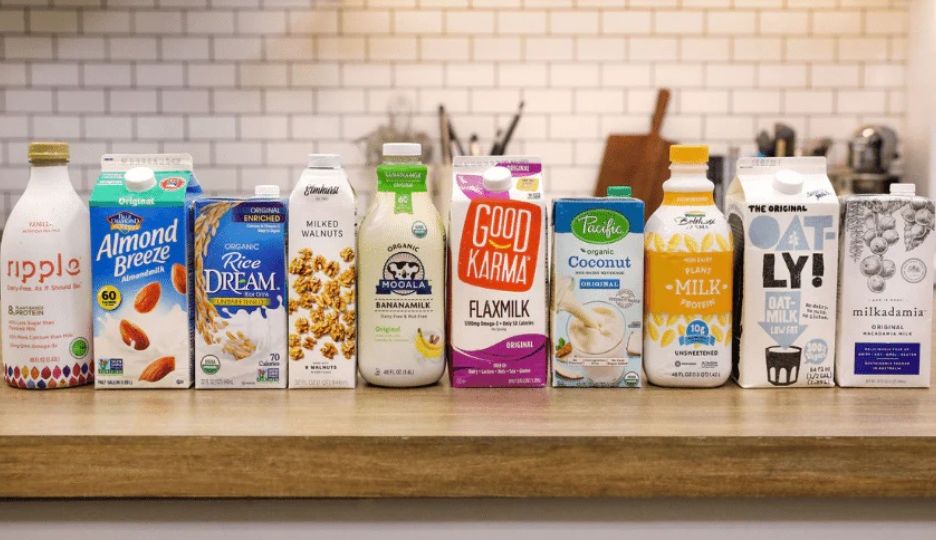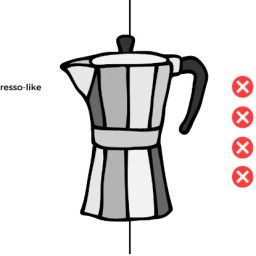
The rise of non-dairy milk options in coffee shops and kitchens around the globe is undeniable. As more people embrace plant-based diets or navigate dairy intolerances, the demand for a satisfying coffee companion that’s dairy-free has soared. When selecting the best non-dairy milk for your coffee, consider not just the taste and texture, but also the environmental impact and how well each milk blends and froths. These factors are essential in ensuring your morning brew is delicious and ethical.
Key Takeaways Best Non Dairy Milk For Coffee
- Health Benefits: Switching to non-dairy milk can bring various health benefits, including lower cholesterol and fewer allergens.
- Top Picks for Coffee: Some non-dairy milks stand out in the coffee cup. Oat milk, for instance, is loved for its creaminess and excellent frothing capabilities, while almond milk provides a subtly sweet nuttiness.
- Environmental Impact: Choosing non-dairy milks also often means supporting more sustainable farming practices, as many plant-based options require less water and land than dairy farming.
Oat Milk
Oat milk has become a barista favorite for several good reasons. Its naturally creamy texture makes it an ideal choice for both hot and iced coffees, creating a rich, smooth base that enhances the coffee’s natural flavors. Moreover, oat milk is known for its environmental benefits—it requires less water than almond milk, for example, making it a more sustainable choice. Its popularity isn’t just about taste; it’s about making a responsible choice for our planet while enjoying a delicious cup of joe.
Whether you’re crafting a frothy latte or a simple morning cup, oat milk is versatile enough to elevate your coffee experience without overpowering it.
Soy Milk
Soy milk is a staple in the world of non-dairy milks, especially in coffee. It’s smooth and has a mild flavor that doesn’t overpower your brew, making it a favorite for those who appreciate the subtle tastes of their coffee. Nutritionally, soy milk is a powerhouse, closely mimicking the protein content of dairy milk, which is why it’s often recommended for those looking for a robust alternative.
Its nutritional benefits, coupled with its creamy texture, make soy milk a fantastic choice for lattes and cappuccinos, where it delivers a delightful froth.
Almond Milk
Almond milk offers a gentle nutty flavor that complements coffee without dominating it. This subtle taste makes almond milk a versatile choice for a wide range of coffee types, from a robust espresso to a mild Americano. However, while almond milk scores high on flavor and versatility, it’s important to consider its environmental footprint. Almond cultivation is water-intensive, which poses sustainability concerns.
Despite this, its low calorie count and pleasant flavor keep it popular among coffee enthusiasts looking for a light, dairy-free milk option.
Coconut Milk
For those who enjoy a hint of the exotic in their morning cup, coconut milk is a tempting choice. Known for its rich, tropical flavor, coconut milk adds a creamy, luxurious texture to coffee that few other non-dairy milks can match. It’s particularly well-suited for those who prefer their coffee on the sweeter side or enjoy flavored brews.
However, coconut milk is higher in fat than other non-dairy alternatives, which is something to consider depending on your dietary preferences. But for a creamy, indulgent coffee experience, coconut milk is hard to beat.
Cashew Milk
Cashew milk is known for its rich, creamy texture, making it a luxurious addition to any coffee. It blends smoothly into both hot and cold beverages, providing a subtle, understated flavor that enhances without overwhelming. In terms of frothability, cashew milk stands out among nut milks. It creates a soft, velvety foam that’s perfect for lattes and cappuccinos, offering a dairy-free option that doesn’t compromise on texture or taste.
For coffee lovers looking for a creamy texture with a hint of nuttiness, cashew milk is an excellent choice.
Rice Milk
Rice milk is appreciated for its exceptionally neutral flavor, making it a discreet companion to coffee. It allows the bold flavors of the coffee to shine through, without adding any overwhelming tastes. However, rice milk does have its limitations, particularly when it comes to creating froth. Its low protein content means it struggles to foam up, which can be a drawback for those who love a frothy latte or cappuccino.
From an environmental perspective, rice milk is also less favorable as it falls behind other non-dairy milks like oat or soy in terms of water usage.
Pea Milk
Pea milk is gaining popularity not just for its creamy texture, but also for its impressive nutritional profile. It’s high in protein, which not only makes it a healthful choice but also ideal for creating rich, luxurious froth in coffee drinks. Sustainability is another key advantage of pea milk. It’s produced with a lower environmental impact compared to many dairy and non-dairy milks, making it a responsible choice for the environmentally conscious.
Its ability to foam well makes it suitable for elaborate coffee preparations, from frothy cappuccinos to smooth lattes, ensuring a delightful coffee experience without dairy.
Hemp Milk
Hemp milk delivers a unique, nutty flavor that can add an intriguing twist to your coffee. Not only does it taste good, but it also froths well, making it a viable option for those creamy lattes and cappuccinos. Environmentally, hemp milk sits in a sweet spot—it’s more sustainable than some nut milks but might not be as eco-friendly as soy or oat milk.
Its balanced approach makes it a favorite for those who are environmentally conscious but still seeking the rich, foamy texture that complements coffee beautifully.
Hazelnut Milk
Hazelnut milk, with its distinctive nutty flavor, is a treat for coffee lovers looking to infuse their brew with a taste of something different. While it offers a delightful flavor, its environmental impact is somewhat mixed. Like other nut milks, the production of hazelnut milk can be resource-intensive, although it’s generally considered to be more sustainable than almond milk.
This makes it a good option for those who prioritize flavor and are also mindful of their environmental footprint.
FAQs
What are the best non-dairy milks for espresso-based drinks? For espresso-based drinks like lattes and cappuccinos, oat milk, soy milk, and pea milk are top choices. They froth well and offer a creamy texture that mimics dairy milk, enhancing the coffee’s flavor without overpowering it.
How can I prevent non-dairy milk from curdling in my coffee? To prevent non-dairy milk from curdling, warm the milk before adding it to the coffee. Avoid pouring cold milk directly into very hot coffee, as the temperature shock can cause curdling. Additionally, selecting milks with higher fat content, like coconut or soy, can also help minimize curdling.
Which non-dairy milk provides the best froth for latte art? Barista editions of oat, soy, and pea milk are specially formulated for coffee and are excellent for creating stable, silky froth that’s perfect for latte art. These milks have been processed to perform well under heat and steaming, producing a smooth texture that holds shapes well.
Are there any non-dairy milks that are particularly good for the environment? Oat milk and soy milk are generally considered more environmentally friendly options. They require less water and land than almond or rice milk, making them a sustainable choice for eco-conscious coffee drinkers.
Can I use any type of non-dairy milk in iced coffee? Yes, most non-dairy milks can be used in iced coffee. Almond milk, coconut milk, and hemp milk are particularly good choices due to their light textures and ability to mix well without frothing. These milks add a refreshing flavor and creamy texture to iced coffee without overwhelming it.
Final Thoughts
Using non-dairy milk in your coffee isn’t just about managing dietary restrictions—it’s a lifestyle choice that affects health, flavor, and the environment. Each type of non-dairy milk brings its own unique qualities to your cup, so choosing the right one can enhance your coffee experience. Whether you’re looking for a milk that froths up beautifully for artistic lattes or one that simply complements the flavor of your espresso, there’s a plant-based milk out there for you.









